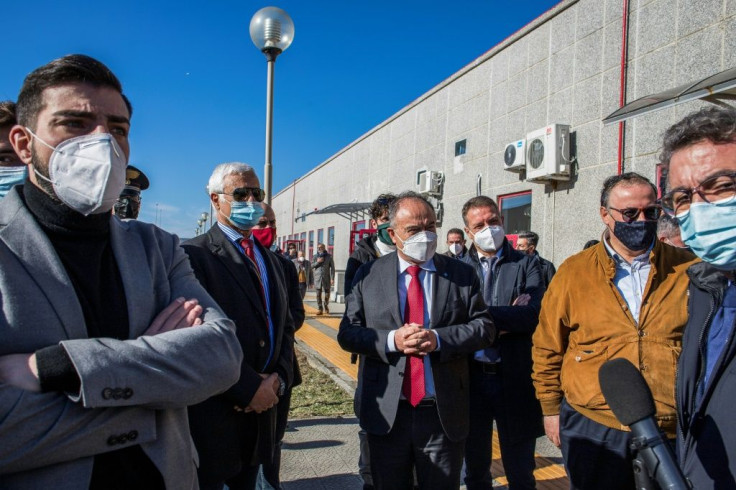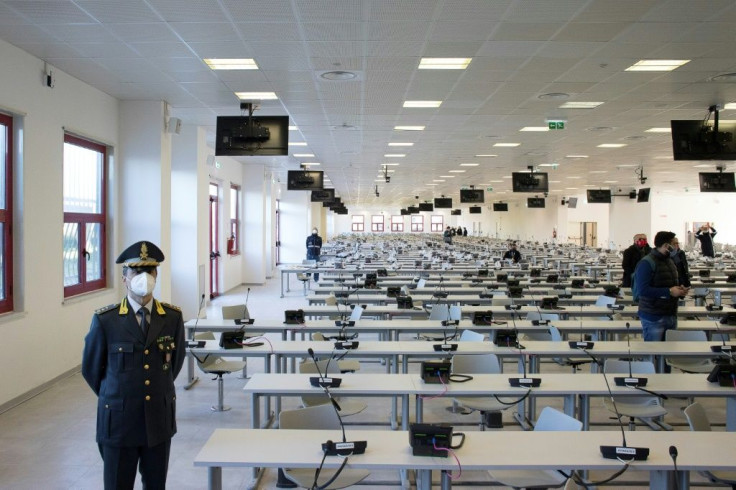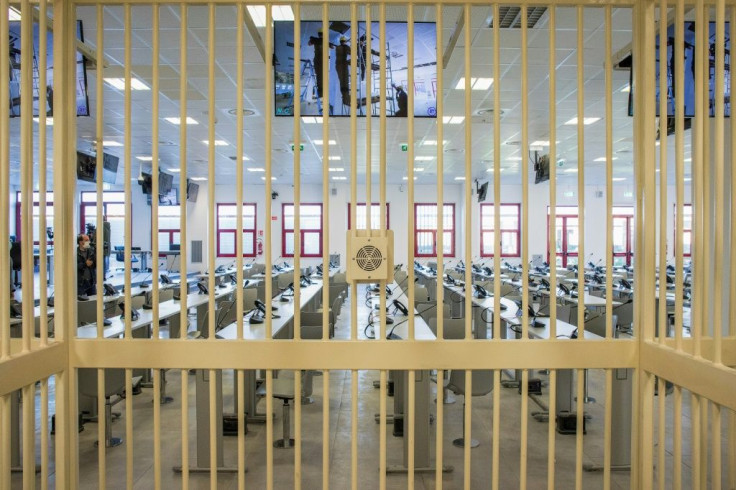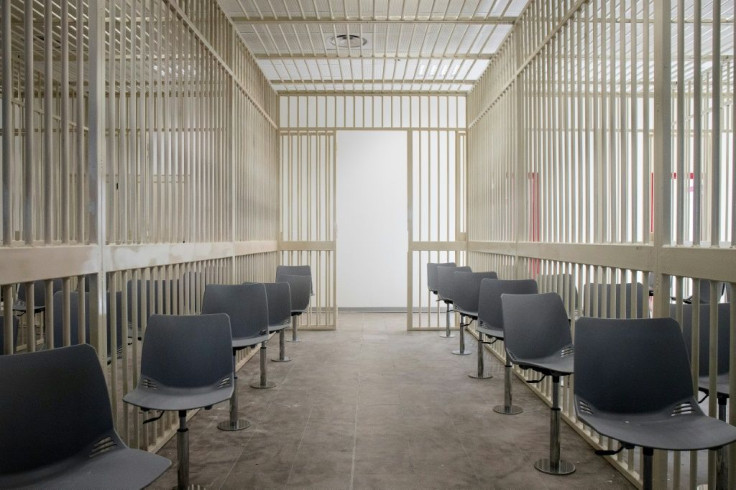From 'Wolf' To 'Wringer': Italian Mobsters Face 'Maxi-trial'
Hundreds of suspected members of the 'Ndrangheta, Italy's most powerful mafia group, will face a judge this week as the country's biggest "maxi-trial" of the past three decades gets underway.
The trial against the crime syndicate and its accomplices -- among them politicians, civil servants, police and white-collar businessmen -- is expected to last more than two years.
With 355 defendants, over 900 prosecution witnesses and 400 lawyers, the trial also features an unprecedented 58 state witnesses ready to break their code of silence, or "omerta", and expose the clan's long-buried secrets.

Held inside a specially outfitted building in the heart of 'Ndrangheta territory in Calabria, Italy's poorest region, the trial beginning Wednesday targets just one group, the Mancuso family and its affiliates.
During a recent hearing, it took three hours to read the names of the defendants, which include boss Luigi Mancuso, "The Uncle" -- who spent nearly 20 years in prison before going underground -- and dozens of others with nicknames straight out of Hollywood, like "The Wolf", "Fatty", "Sweetie", "Blondie", "Little Goat", and "The Wringer".

The trial is a show of strength for the state in the backyard of the 'Ndrangheta, which controls tonnes of cocaine flowing into Europe.
Taking to the court will be Italy's most famous anti-mafia prosecutor, Nicola Gratteri, who has lived under police escort for more than 30 years.
As a child, the 62-year-old Calabrian played football with many of those he put behind bars decades later.
He has vowed to take down "this asphyxiating 'Ndrangheta, which truly takes the breath and the heartbeat from the people".

The trial's size is only eclipsed by Italy's first "maxi-trial" of 1986-1987 in Palermo against Sicily's Cosa Nostra and its web of connected families.
That now-legendary event saw 338 people convicted. Prosecutors Giovanni Falcone and Paolo Borsellino were later assassinated by the mob.
The scope of the upcoming trial is more limited, targeting one of the estimated hundreds of 'Ndrangheta families whose tentacles spread globally.

Still, it is significant not only for its size but also for the inclusion of so many lawyers, politicians, public administrators and entrepreneurs who help the 'Ndrangheta operate, said Federico Varese, professor of criminology at Oxford University.
"It makes the point that there's a society outside the criminal organisation that's colluding and helping," he told AFP.
"Obviously it's shocking that you have a criminal group so rooted in the territory you have to put hundreds of people on trial," Varese said.
"This trial shows how deeply rooted the 'Ndrangheta is in society."

The number of accused swells to over 400 when including the more than 90 defendants who opted for speedy trials.
Among them is former parliamentarian Giancarlo Pittelli, a renowned defence lawyer, Freemason and ex-senator from former premier Silvio Berlusconi's Forza Italia party.
He denies accusations he acted as middleman between the 'Ndrangheta and the world of politics, banking, and other powerful institutions, including the courts.
Most of the defendants were swept up in a series of orchestrated pre-dawn raids in December 2019, resulting in arrests throughout Italy and in Germany, Switzerland and Bulgaria.
Allegations include mafia association, murder and attempted murder, drug trafficking, extortion, loan sharking, disclosure of official secrets, abuse of office, possession of stolen goods and money laundering.
Among the multiple murders, some of which date back to 1996, is that of the 2002 disappearance of Filippo Gangitano, murdered by his cousin because of his homosexuality.
"These things can't exist inside the 'Ndrangheta," the cousin, now a state witness, said he was told by the bosses.
Gangitano's body was buried in a spot where a road was later built, the witness said, according to news reports.
Maxi-trials are controversial, given the need to give each suspect a fair hearing.
Prosecutors argue the 'Ndrangheta's extensive operations mean crimes cannot be easily separated and prosecuted piecemeal.
But the stakes are high for Gratteri.
"If it doesn't manage to convict a lot of people, it will be considered a flop," one defence lawyer, Nicola Lo Torto, told AFP.
But even if successful, it won't mean the end of the 'Ndrangheta, said Oxford's Varese.
"You can throw them in jail but if you don't take away the root causes of why they exist, they'll just reproduce."
© Copyright AFP 2024. All rights reserved.





















